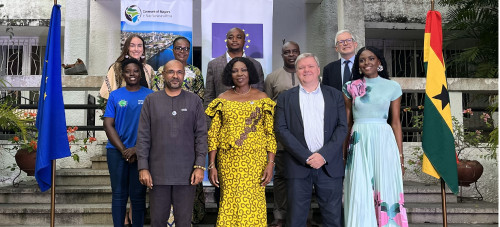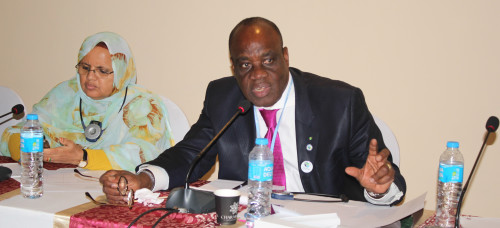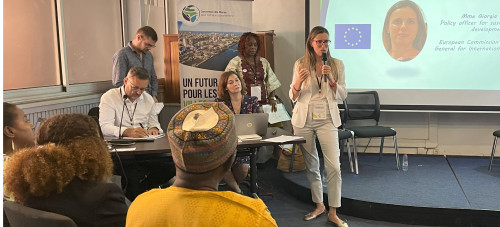Financing experts share how local governments can plan better and ultimately access climate finance
Published: 9 Dec 2020

Robust project preparation and planning is key in order for cities to access the financing needed to implement climate change and energy projects on the ground. This is what the experts have to say.
There are increasingly strong calls for cities to show a pipeline of climate and energy projects, and to improve the quality of the projects in this pipeline in order to access the financing needed to ultimately create more sustainable cities. However, many cities still face many challenges to undergo the necessary planning processes that lead to projects packaged for attracting finance. A number of barriers exacerbate the situation, yet there are also opportunities that cities must take hold of.
The second session of the CoM SSA Day event at LoCS4Africa 2020, entitled Planning with Finance in Mind, created a platform for funders, cities and those providing technical support to cities within the CoM SSA initiative to engage and share experiences on how cities can improve and align planning processes to identify bankable projects and support their implementation.
Watch the session recording now
Listen to the recording in French
Speakers for this session included representatives from the City of Johannesburg, Agence Française de Développement (AFD), Agence Française d’Expertise Technique Internationale (Expertise France), the European Commission, and the European Investment Bank.
Enablers to improving planning processes and attracting finance
The experts in the session identified a number of factors that can improve planning processes and ultimately attract climate finance to cities. These include:
- Developing capacity and providing training to ensure cities have the available skills to bridge the gap between planning and finance
- Implementing and supporting multi-level governance to enhance the relationship between levels of government who share different mandates to access finance
- Using existing data available for more robust project development that demonstrate a strong rationale and impact
- Exploring the role that Development Finance Institutions can play in supporting cities to improve credit-worthiness
“We must bridge the gap between planning and accessing finance. AFD does this through project preparation funds and facilities, the use of the decentralisation diagnostic tool, and the Public Expenditure and Financial Accountability for Local Governments (PEFA)”, explained Sebastien Carreau, AFD Task Team Leader.
Cities need to be aware of how potential financiers analyse projects
In order to be considered feasible, projects need to be packaged according to extremely high standards required by international funders. But in order to meet these standards, cities need to have a better understanding of the requirements of funders and the financial mechanisms that each institution offers. Furthermore, funders need to understand how these standards can better meet the needs and current capacities of cities to increase the flow of finance.
“A project must have concrete and tangible results, must be sustainable in the long term with continued benefits and an exit strategy, replicable and scalable, compliant with gender, environmental and social impacts assessments, be efficient and effective and fit in to the programme cycle of funders,” explains Georgios Grapsas, Team Leader, DG DEVCO Unit for Sustainable Energy and Climate Change, European Commission.
Preparing a robust project proposal can also be a lengthy process and cities need to know the requirements they need to meet and plan accordingly before setting off on this journey.
Barriers limiting cities from planning to attract finance
During the session, the experts and attendees pointed out barriers that limit cities from planning in a way that enables access to finance. These include:
- Limited skills for sufficient and thorough project preparation
- Insufficient funding for early stage project development
- Dedicated capacity to undertake this process, which is often lengthy
These were also identified as opportunities for support that can be provided to cities.
The European Commission’s commitment to support cities in robust project preparation
Enablers for overcoming the barriers cities currently face in planning with financing in mind clearly already exist. It’s only a matter of implementing these solutions. To support the implementation of these enablers and to overcome the mentioned barriers, the European Commission has committed 45 million Euros to the CoM SSA initiative to allow cities to build capacity and increase multi-level governance to ultimately access the finance needed to implement on the ground climate projects.






